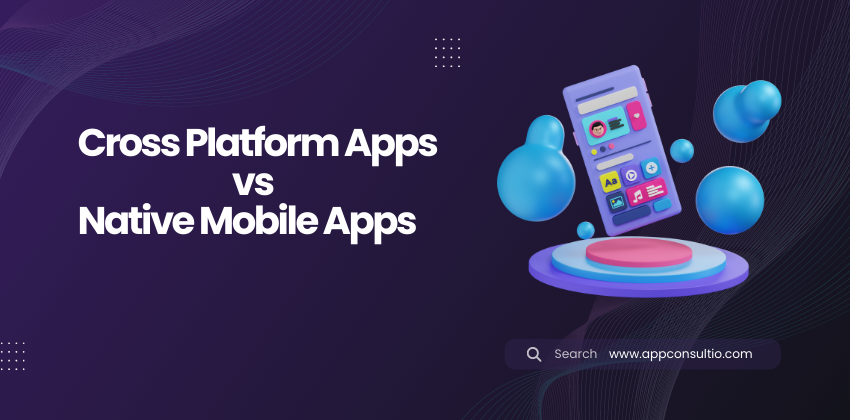
8 to 12 years ago, people had to choose between Android or iOS and learn Java or Objective-C for mobile development. But in the last 10 years, new options like Kotlin for Android and Swift for iOS came up, and a new way called cross-platform also became popular.
In 2020, there's a debate about which is better: making apps that work well on just one platform (native) or making apps that work on both platforms (cross-platform). For native, you use tools made for each platform, like Java for Android and Swift for iOS.
You use tools on both platforms for cross-platform, like React Native (using js) from Facebook and Flutter (using Dart) from Google.
Experienced mobile developers might say that both sides are equal. They both have good things. But sometimes, one might be better depending on the situation.
Contrasting Cross-Platform Apps and Native Mobile Apps-
Size of Projects
Sometimes, small IT companies with about 10 people choose cross-platform. They usually work on smaller projects that take 3 months to a year to finish. These projects don't need advanced technology, so cross-platform tools are good for them. It's better for both the company and the customer.
Having fewer developers is possible with cross-platform, often just one person. This makes it easier for the customer because they only have to talk to one person. Sometimes, different developers can think differently, leading to differences in how things look and work on different devices. This can take more time to fix and make things similar.
For small companies, going cross-platform can save money since they need fewer developers. It's not a good idea for one person to make an app for one platform first and then for another. It's expensive and takes too much time.
Will this affect the quality? For simple apps like basic social networks or online shops, it usually won't make a difference. These apps don't need much from phones, so cross-platform is okay. But for more complex apps, it might be
different (although, in some cross-platform tools, you can still do advanced stuff). So, simple apps won't be affected.
Task Comfort
The first thing to consider is how easy it is to learn. If technology is widely used, you can find many courses and articles about it online. Native development has an advantage here. For example, Kotlin is a good choice for making Android apps.
Google likes Kotlin because it's impressive, powerful and makes coding enjoyable. It's also shorter and helps avoid mistakes. It works well with Java, which is used for Android apps. More libraries and tools will be made for Kotlin, making it even better for learning and problem-solving.
On the other hand, there's Flutter, also from Google. It's a new way to make apps work on different devices. Unlike others, it doesn't change the code into something else; it creates a window on the screen itself. Flutter uses Dart, a language made by Google. But it's still quite new, so there aren't as many learning materials and libraries yet.
popularity of cross-platform apps and native mobile apps
Both cross-platform apps and native mobile apps have their own advantages and popularity in mobile app development.
Native apps are favoured for their exceptional performance and ability to deliver a tailored user experience specific to each platform. They excel in handling complex applications that heavily rely on device capabilities, ensuring optimal performance and user satisfaction.
On the other hand, cross-platform app development has gained traction due to its potential to expedite the development process, reduce code duplication, and yield cost savings. This approach is particularly advantageous for startups and businesses aiming to swiftly deploy their apps across multiple platforms.
Conclusion
In conclusion, to sum it up, when it comes to making mobile apps, there are two main ways: one that focuses on each platform (native) and another that works on both platforms (cross-platform). Native apps are like experts tailored for each platform, while cross-platform is like a smart way to save time and money, especially for smaller projects. The choice depends on how complex the app is and what you want to achieve.